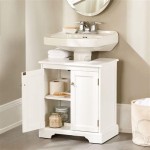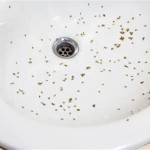My Bathroom Sink Smells
The bathroom sink is one of the most important fixtures in any home. It is used for a variety of purposes, from brushing our teeth to washing our hands. However, a smelly bathroom sink can be a major turn-off. There are a number of factors that can contribute to a smelly bathroom sink. Some of the most common causes include: - Hair and soap scum buildup - Food particles - Mold and mildew - Hard water deposits In this article, we will discuss the essential aspects of a smelly bathroom sink and how to fix them.Hair and Soap Scum Buildup
Hair and soap scum buildup is one of the most common causes of a smelly bathroom sink. When hair and soap scum accumulate in the drain, it can create a breeding ground for bacteria. Bacteria can produce foul odors, which can then spread throughout the bathroom.Food Particles
Food particles can also contribute to a smelly bathroom sink. When food particles get into the drain, they can start to rot. This rotting process can produce unpleasant odors.Mold and Mildew
Mold and mildew are types of fungi that can grow in damp, dark places. Bathroom sinks are often a perfect environment for mold and mildew to grow. Mold and mildew can produce a musty, unpleasant odor.Hard Water Deposits
Hard water deposits can also cause a smelly bathroom sink. Hard water contains high levels of minerals, which can build up on the surface of the sink. This buildup can create a breeding ground for bacteria, which can then produce foul odors.How to Fix a Smelly Bathroom Sink
Now that we have discussed the essential aspects of a smelly bathroom sink, let's talk about how to fix it.1. Clean the Drain
The first step in fixing a smelly bathroom sink is to clean the drain. You can do this by using a drain cleaner or by pouring a cup of baking soda down the drain, followed by a cup of vinegar. Let the baking soda and vinegar sit for 15 minutes, then flush the drain with hot water.2. Clean the Sink
Once you have cleaned the drain, you need to clean the sink. You can do this by using a bathroom cleaner or by wiping the sink down with a damp cloth. Be sure to get into all the nooks and crannies, as this is where bacteria can hide.3. Deodorize the Sink
After you have cleaned the drain and the sink, you need to deodorize the sink. You can do this by placing a few drops of essential oil in the drain. Essential oils such as tea tree oil, lavender oil, and peppermint oil have antibacterial and antifungal properties that can help to kill bacteria and mold.4. Prevent Future Smells
Once you have fixed your smelly bathroom sink, you need to take steps to prevent future smells from developing. Here are a few tips: - Run hot water down the drain once a week to help prevent hair and soap scum buildup. - Dispose of food particles in the trash, not in the sink. - Keep the bathroom well-ventilated to prevent mold and mildew from growing. - Clean the sink regularly to prevent hard water deposits from building up.
How To Clean A Stinky Sink Drain Home Repair Tutor

What Causes Bathroom Drains To Smell

How Can I Help A Stinky Bathroom Sink Drain Cleaning More

Why Does My Bathroom Sink Smell And What To Do About It

How To Clean Stinky Drains Liquid Plumr

Why Your Bathroom Sink Drain Smells

Sewer Smell In Bathroom Solved Bob Vila

Why Is There A Bad Smell Coming From My Bathroom Sink

How To Clean A Stinky Sink Drain Home Repair Tutor

Why Does My Bathroom Sink Smell Like Sewer Top Causes
Related Posts







